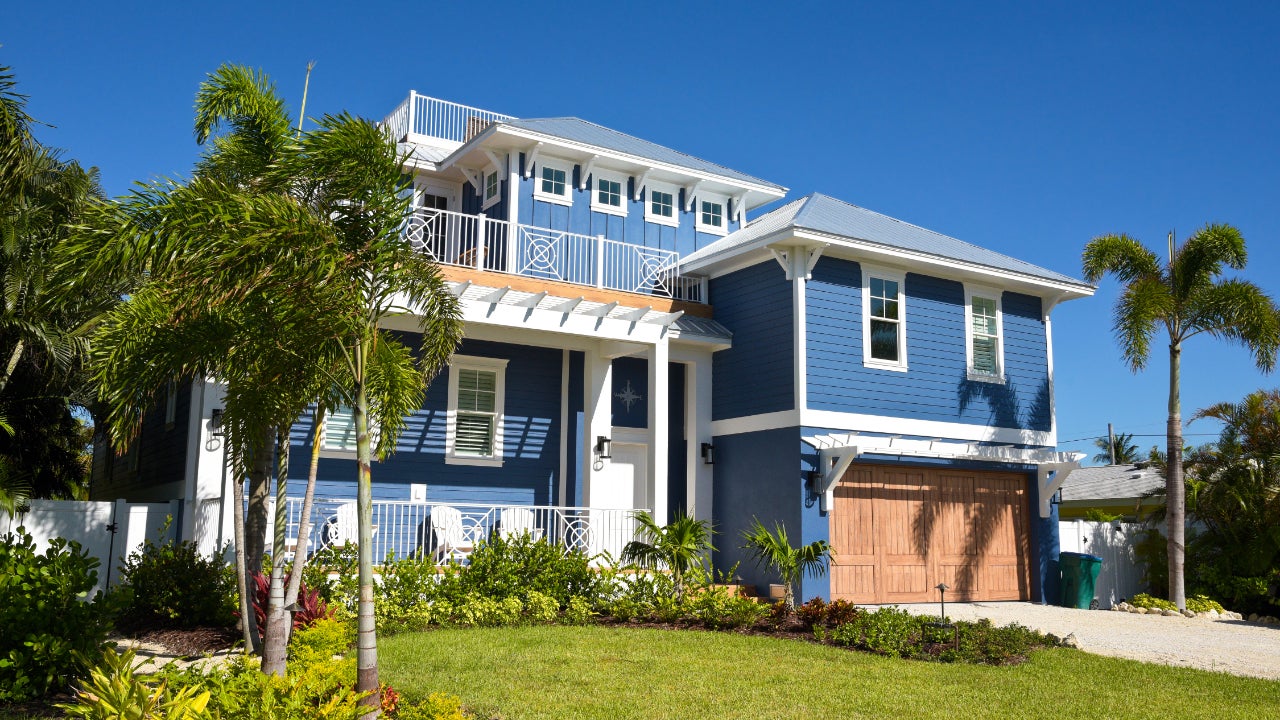How to acquire and establish a rental property

An investment property is real estate purchased with the intention of earning returns through rental income or profit at resale. Just over 70 percent of single-family rental properties are owned by individual investors, according to the latest Census data. If you’re looking to take the plunge and buy an investment property, here are some initial considerations to make.
Considerations when investing in rental property
Here are a few considerations to think through before you get serious about an investment or rental property.
Location matters
Remember, it’s easier to look in on a property across town rather than one that’s two or more hours away. True, you can always hire a local property manager to keep the home in tip-top shape, but that’ll eat into the passive income you hope to gain.
It’s also important to consider the location with an investor’s eye for what’ll net you the most return. When evaluating locations, it’s often best to avoid areas with lots of vacancies and instead look to neighborhoods close to amenities such as parks and shopping, as well as transit, says Trent Ellingford, an investor and co-founder of the Real Estate Knowledge Institute.
After researching promising neighborhoods, connect with a real estate agent experienced in the local rental property market.
“Don’t use just a real estate agent,” says Kathy Fettke, CEO of Real Wealth Network, host of “The Real Wealth Show” and “Real Estate News for Investors” podcasts and author of “Retire Rich with Rentals.” “It’s best to look for an agent who specializes in real estate investments. Ideally, look for someone who owns them nearby. Oftentimes, property managers have brokers in-office to help.”
Types of rental properties
The kind of property you buy is equally important. The three main types are:
- Single-family homes: These are one-unit properties, typically for either long-term tenants or on a short-term basis through platforms like Airbnb or VRBO. If it appreciates in value, you might be able to make additional profit down the line when you sell. With a single-family home, your cash return will be lower than if you had purchased a rental property that can house multiple tenants. Compared to a condo, you’ll also be responsible for all the maintenance.
- Condos: Condos are generally more affordable upfront than single-family homes, and you could be spared many maintenance hassles thanks to the presence of an HOA. Keep in mind, however, some condo associations significantly restrict what you can do with the property, including renting it out, and mortgage lenders will factor in the monthly HOA fee when determining what size loan to extend to you.
- Multifamily homes: Multifamily homes include duplexes (two units), triplexes (three units) and properties with four units or more. These allow you to rent to more tenants, generating more income, but also cost more than a single-family home or condo. You might have many more responsibilities as far as being a landlord, as well.
“Single-family homes are the most popular,” says Bruce Ailion, an attorney and Realtor with RE/MAX Town and Country in Georgia. “Some areas have a tradition of two- to four-family homes, while others do not. Multifamily properties of less than 100 units tend to be owned by individual owners or owner groups. Apartments over 100 units tend to be owned by institutions and professional real estate investors, and retail office and warehouse spaces tend to attract higher-income and more sophisticated investors.”
Consider the full financial commitment
How much money do you have on hand to make a down payment, or potentially pay for the home in full? Calculate your approximate return on investment (ROI) before you purchase a property. Estimate how much income you’ll get from the property and what your expenses will be. Subtract your expenses from your income to find your net operating income. A rental property’s expenses generally include:
- Rental property insurance: Varies based on location; about 25 percent higher than standard homeowners insurance
- Rental property taxes: Varies based on location; the average nationally for a single-family home was $3,785 in 2021, according to ATTOM
- Utilities: Includes electric, gas, heating and water, some of which tenants might pay, but you’ll be on the hook for during vacant periods
- Home maintenance and repairs: Varies; the average nationally was $3,018 for maintenance and $2,321 for “emergency spending” in 2021, according to Angi
- Advertising costs: Includes real estate agent commission, typically 5 percent to 6 percent of the property’s purchase price; or vacation rental site service fees, typically 3 percent to 5 percent based on rent amount
- Property management and other fees: Includes property management setup, management and maintenance fees, as well as tenant screening, eviction or other expenses; property managers typically charge between 6 percent and 10 percent of the rent for ongoing service, says Ailion
- HOA fees (if applicable): Averages several hundred dollars
- Rental income taxes: “Income taxes must be paid for all money made on the property,” says Ellingford. “Of course, everyone thinks of the monthly rent; however, income also includes any other money you collect, such as late fees, pet fees or even work by the tenant in lieu of rent.”
Keep in mind, while you’ll need to report all of your rental income to the IRS, you can typically deduct most or all of your expenses, along with depreciation and mortgage interest. Review IRS Publication 527 or consult with a trusted tax professional for more specifics pertaining to your rental property situation.
Understand differences between investment properties and second homes
A second or vacation home is different in many ways from an investment or rental property, and not just because of how it’s used. For one, your mortgage interest rate will likely be higher for a rental property because it’s not your primary residence, meaning the lender is taking on more risk. With mortgage rates going up, it’ll cost even more than it would have say last year.
Know the laws
Do you know what to do when your tenants won’t pay up? For example, certain states require a grace period when your tenant is behind on rent. In other words, you can’t evict a tenant until the grace period is over, but you can still charge late fees. Know the laws in your state before you rent out your property, including what constitutes a compliant lease agreement (including security deposit requirements), discriminatory practices and tenants’ right to privacy.
Determine your vacancy plan
You’re not always going to be able to rent out your property. You might have trouble finding renters, have to rip up carpet and patch drywall or provide a rent-free place for a family member to temporarily stay. There could be any number of reasons why income from your rental property might dry up. How will that impact your financial situation, and how will you cope?
Financing your rental property
A mortgage for a rental property isn’t the same as a home loan for a primary residence, or even a second or vacation home. Keep the following in mind:
- Make a sizable down payment: You’ll typically need to put down at least 20 percent for a rental property, but if you want to look more attractive to a mortgage lender, you might want to put down more than that.
- Be a strong borrower: You’ll also need a credit score of at least 640 and a debt-to-income (DTI) ratio of no more than 45 percent, based on Fannie Mae standards. The DTI ratio is your monthly debt payments divided by gross monthly income. (Need to improve your credit score? Learn some tips.)
- Go outside of big banks: Big banks might not readily loan to you compared to a small bank, or offer you as desirable of loan terms. Compare options from both big and small banks, including community lenders, to find the best combination of rate, fees and customer service. It might help if you already have a relationship with the bank or lender.
- Ask for owner financing: Owner financing means that the seller agrees to accept payments directly from you instead of requiring you to get a mortgage. This can benefit both you and the seller, but there are risks involved, so tread carefully; this arrangement isn’t for everyone.
Bottom line
A rental property could be a sound investment, particularly if the rent you collect offers you some extra income. Weigh all the aspects of purchasing a rental home, including financial implications, taxes you’ll have to pay, laws involved and how much extra time you have on your hands.
You may also like

How to buy a house from a family member

5 tips for financing investment property

How to build wealth while renting



